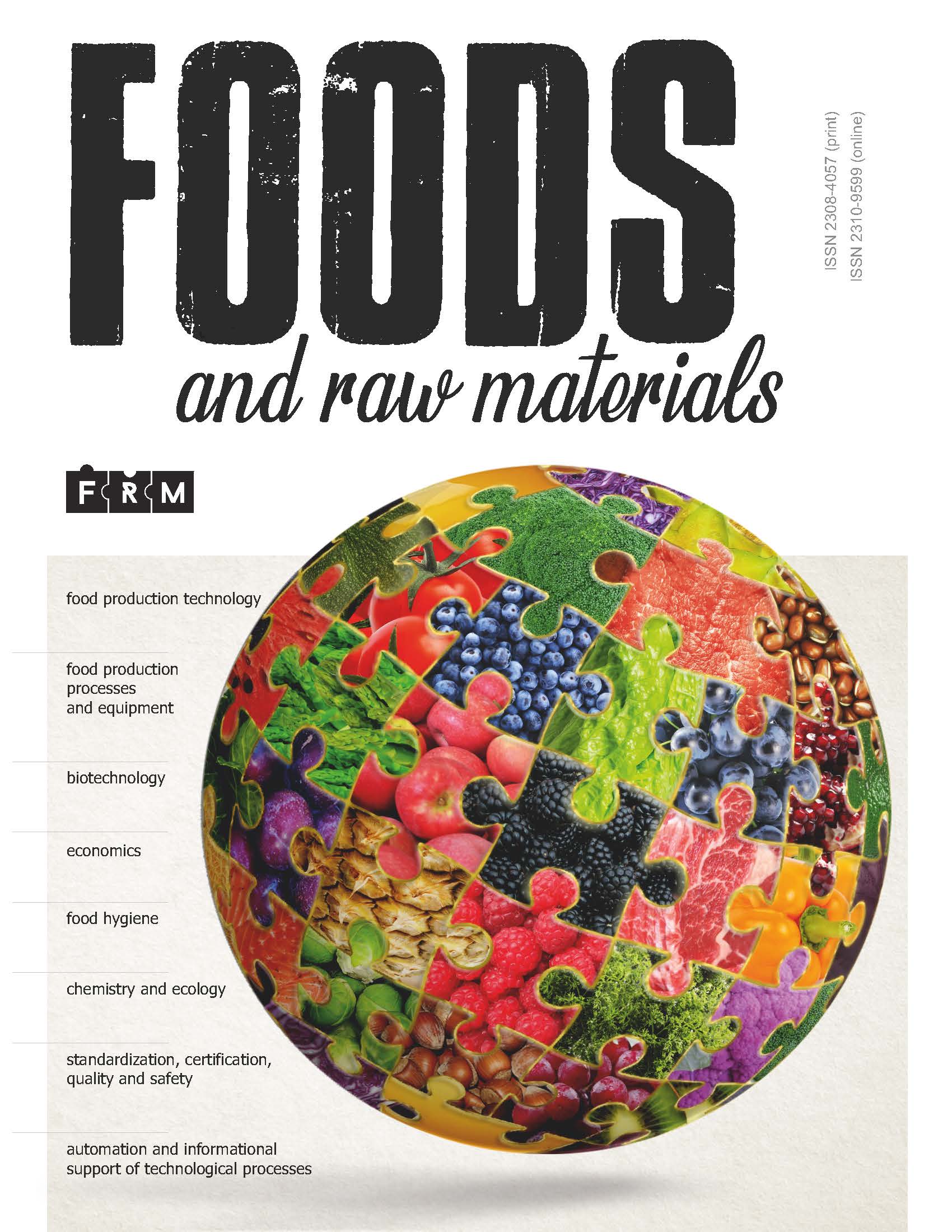Galactosidase and proteinase activity of lactic acid bacteria of the DELVO-YOG range has been investigated. Lactic acid bacteria of the DELVO-YOG range have been shown to exhibit maximal galactosidase activity in the presence of the CMC stabilizer Akucell 2785; the activity was minimal when sodium alginate NO4-600 was used as a stabilizer. The proteolytic activity demonstrated by the lactic acid bacteria of the DELVO-YOG range was maximal when sodium pyrophosphate SAPP 28 was used as a stabilizer. Minimal proteolytic activity of lactic acid bacteria of the DELVO-YOG range was registered when CMC 6000-9000 was used as a stabilizer. An increase of galactosidase and proteinase activity concomitant to an increase of the stabilizer content from 0.5 to 1.0 mass. % was demonstrated for all the denominations of lactic acid bacteria of the DELVO-YOG range.
milk, lactic acid bacteria, activity, glycolysis, proteolysis, structure stabilizer
INTRODUCTION
Functional food comprises special-purpose products of natural or artificial origin with predefined properties; these products are intended for systematic everyday use and their primary role is to compensate for the deficiency of the regulatory components of food in the organism. Functional foods contribute to health preservation, disease prevention, and enhancement of the body’s ability to withstand adverse environmental effects and to endure physical and psycho-emotional stress. The significance of nutrition is emphasized by the Decree № 917 of 10.08.98 “On the Concept of the State Policy Regarding Healthy Nutrition of the Population of the Russian Federation” of the Government of Russian Federation.
Fermented dairy products are manufactured using starter cultures of a defined composition. Milk is an ideal nutrient medium for starter cultures, which are used to direct and control biochemical transformations. Biochemical transformation of milk components includes controlled glycolysis of lactose yielding lactic acid and regulated proteolysis of casein, and therefore both galactosidase activity and proteolytic activity are important characteristics of the starter cultures [1]. The most useful species of starter cultures must display maximal activity during fermentation.
The structure of stabilized dairy products is formed as a result of casein coagulation as the isoelectric point is reached. Structure stabilizers allow for structure formation at pH values deviating from the isoelectric point value. Moreover, the use of stabilizers allows for control over the structural, mechanical, physico-chemical, and organoleptic parameters of the final product, as well as its general quality. Stabilizers are widely used to regulate the structure of fermented milk beverages and achieve the required texture which does not change during storage and remains stable throughout the techno-logical process. Stabilizers should prevent delamination of the product and separation of whey; in case of yoghurts containing fillers and additives stabilizers should provide for uniform distribution of these components in the product during packing and subsequent storage.
The main objectives of the manufacturing of structured fermented dairy products are the optimization of stabilizer content, the selection of starter cultures possessing high acid-forming capacity, and the selection of cultivation conditions providing for rapid propagation of the microorganisms and intensive acid production by them. Cultivation of starter cultures that have significant proteolytic activity accelerates the propagation of bifidobacteria in the structured product and improves the organoleptic properties of the product. A wide range of starter cultures adapted to specific features of the technology used and the biochemical processes of the formation of texture and taste properties of dairy products is available. The qualitative composition of starter cultures is being constantly improved [2].
Food stabilizers are currently considered to be among the most important components of the majority of structured fermented dairy products, since they allow for the manufacturing of a product of required texture [3]. In addition to improving the product quality and increasing its shelf life, the use of stabilizers allows for a decrease of product costs, this improving the economic performance of the enterprise. The experiments performed in the present study revealed the decisive role of the environmental conditions (mass concentration and type of the stabilizer) in regulating the galactosidase and proteinase activity of starter cultures. Investigation of the dependence of galactosidase and proteolytic activity of DELVO-YOG starter cultures on the type and content of the stabilizer can be of practical importance for the production of stabilized dairy products.
1. Prosekov, A. Yu., Sovremennye aspekty proizvodstva produktov pitaniya (Modern Aspects of Food Production), Kemerovo: Kuzbassvuzizdat, ASTSh, Universitety Rossii, 2005.
2. Prosekov, A. Yu. and Korotkaya, E. V., Kriokonservirovanie bakterial’nykh preparatov molochnoi promyshlennosti (Cryopreservation of Bacterial Preparations for Dairy Industry), Kemerovo: Kem TIPP, 2010.
3. Gorbatova, K. K., Fiziko-khimicheskie i biologicheskie osnovy proizvodstva molochnyh produktov (Physico-Chemical and Biochemical Basis of the Manufacturing of Dairy Products), Moscow: GIORD, 2003.










